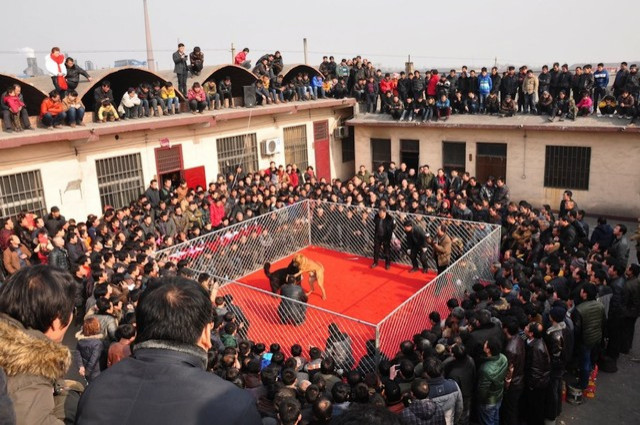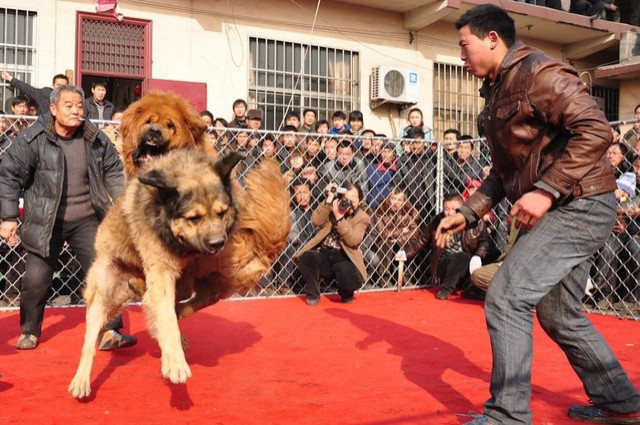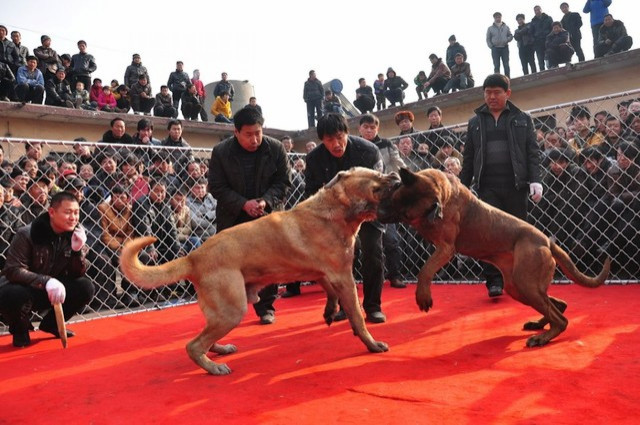Dogfighting In China: A Tradition That's Hard To Stop
As the rest of the nation rang in 2013 with fireworks and glasses of champagne with friends and family, a small village in China's Shanxi province did something else: It organized a dogfighting competition to celebrate the New Year.

According to The Shanghaiist, a Shanghai-based news-blog, on New Year's Day, residents of a village in Jishan county attended the dogfighting competition, which was organized by a local company. Dog owners from around the province came to the village with their different breeds of dogs and were greeted by organizers with complimentary cigarettes, bottled water, and even a pair of gloves.
Pictures of the barbaric event made their way through Chinese social media.

China's laws on animal rights cover the illegal poaching of endangered or protected species, and even in those cases, most punishments do not go beyond fines. There is one law that specifies up to 10 years' imprisonment for someone convicted of capturing or killing an endangered wild species, a category which dogs obviously do not fall under.
China has begun cracking down on organized dogfighting events, particularly last year, when several events were interrupted by authorities. However, the main priority of the officials is to curb gambling, rather than enforce animal protection, because it is illegal in mainland China.

Last October, authorities discovered an underground dogfighting syndicate in Beijing. Crowds gathered for hours, placing bets, as they watched provoked dogs viciously bite each other. Two suspects were detained by police, but only on gambling charges.
According to the Beijing News, the underground gambling and dogfighting ring had existed for more than 10 years, and on the day of the bust roughly 200,000 yuan ($32,000) was recovered.
If money is not involved, animal-rights advocates often find themselves with their hands tied.
Zhu Shuilin, a vice president of the Zhejiang Small Animal Protection Association, told the Global Times that the group tried to pursue a lead on a dogfighting group in Zhuji, a city in Zhejiang province, but came up empty-handed.
"Even if we had found it, there would have been little we could do, other than to try to persuade people. We don't have the authority to intervene," Zhu said.
Even officials do not have the right to intervene unless it is to crack down on gambling.
Liu Yunhui, an official with the Henan county, explained that China has a long tradition of dogfighting, particularly among the Uyghur and Hui ethnic groups, and that fights are not technically illegal as an event itself.
"It is always difficult for the police to separate dogfighting from gambling," Liu said. "If gambling is involved, we will bust it uncompromisingly."
© Copyright IBTimes 2024. All rights reserved.






















